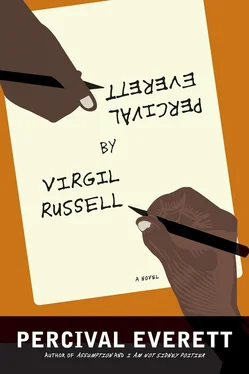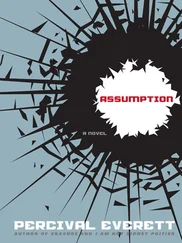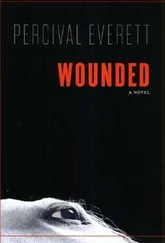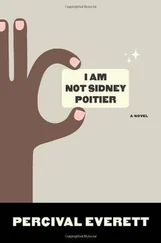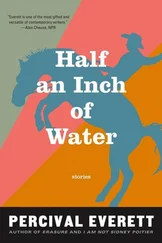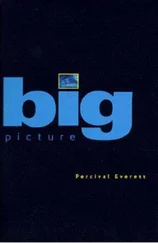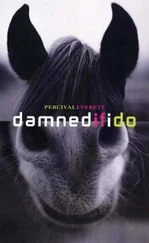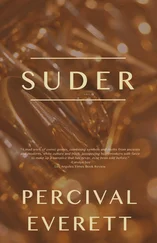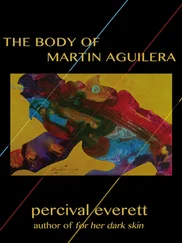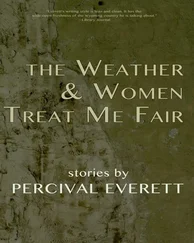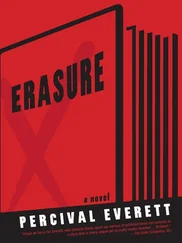Still 38
Emily was in a wheelchair and that was where she should have been. Still, without being bossy, as that was not her nature, she got to wherever she wanted to go, and I was the one pushing her. She was not faring well and it was clear that her being lost in her head featured a return to her craft, namely, logic, and so she seemed to speak in riddles. As when she said to me while I poured my cup of tea, You would do well to remember Zermelo’s theorem.
I’m certain that’s true, I said to her. And what does that theorem state?
That every set can be well ordered.
Well ordered?
A set is well ordered if every nonempty subset of that set has a least element under the specified ordering.
A least element?
An element that is less than or equal to any other element in a set.
And so it went. I hoped that when dementia settled in on me that I would be as obscure and as interesting as Emily Kuratowski. So it went, until one morning she asked, Are we going? I ask because I am not afraid.
You’re not.
You should not be either. Make it what you want. Make it exactly what you want.
I nodded. Then I will not be afraid either, my friend.
39
The exterior wall in the orderlies’ break room. Turns out it was real after all and I held the ancient key that would open it. Emily Kuratowski sat in her wheelchair beside me, she having confessed to being sent by you to escort me through the door and, well, I might as well stop here. Emily is stopping me here, mainly because she refuses to be called a Virgil and because she, as I, we, simply cannot bring ourselves to play dumb enough to entertain any business about the circles of hell or about eternal torment, punishment, restraint, or whatever bugs and annoys the Christian souls that love to read Dante over and over. We will not pass through limbo or Limbo (is it a place with a proper name?), will not climb up and over any hairy-backed demons, wrestle with she-wolves, chat with Horace and Ovid, take joy in watching the anguish of our evil enemies. Nice poem, is all I’ll say. But hell? Abandon hope, all who think there are gates. We will only acknowledge that there is a door and then realize, rather rightly, that it is not set into that exterior wall but leaned up against it, waiting to be taken home by some simpleminded employee, probably Harley, who no doubt needs a door to hell in his basement, or maybe by Leon, who needs really big doors.
So, why are we standing here? Emily Kuratowski asked. Rather, why are you standing? I’m sitting of course.
Because tomorrow is my birthday, I said.
How old will you be?
Seventy-nine.
A baby.
What will they do to us if they find us in here?
They’ll ask us why we’re here.
What will you tell them?
I’ll tell them that we were wondering why they are such failures as human beings and that we were wondering also how such people live.
We’re anthropologists.
Of a kind.
Why did you bring me here? she asked.
A moment of weakness, I said. Sometimes fear can make you creep into one camp or another, can make you almost believe what you want to think you’re too strong to believe. I wanted to think there is a hell. I guess I wanted to think there is a heaven. I wanted to think that I would see my son again.
That’s not a bad thing to think.
I shrugged. It’s a stupid thing to think.
I cannot argue with that.
Do you think there is evil in the world?
I don’t know what that means. I think there are people who are cruel. I know there are. What about you?
No evil.
Good?
Oh, there’s good. No evil. No god or gods or devils? If there is a god, he’s not very good at much.
What about meaning?
Meaning? You mean, like, purpose?
Okay.
She shook her head.
I nodded. Justice?
Maybe. Justice happens just often enough that the myth of it persists. Funny how injustice doesn’t create its own mythology.
Hope springs eternal.
Hope.
Do you think we’re in hell right now, this place?
No.
That was simple.
Hell would be if I’d never seen the Sieve of Eratosthenes as a child or if I had never been able to understand Gauss’s Disquisitiones Arithmeticae. For you it would have been never reading Huck Finn. I’m guessing.
Close enough. So, we’re not in hell now?
However much it feels like it.
But that doesn’t mean we can’t make it hell for someone else.
If I were twenty years younger, I’d kiss you.
If you were twenty years younger, I’d let you. Shall we get out of here?
Emily Kuratowski nodded. On our way out, she sneezed and then said, The axiom of choice does not apply if there is a finite number of bins.
Of course, I said.
40
It had been my experience that the one thing thieves hate more than anything else is theft. And so Mrs. Klink and Maria Cortez and Emily Kuratowski and Sheldon Cohen and I took all of our valuables, as they were called, and hid them away behind my azalea bush. And then we, in turn, went to the building administrator and told her that we had been robbed. The administrator, as she was called, had no face and so she could have no expression when one or all of us came to her with our reports. She made notes and said what she would whether she was being told a faucet was dripping or a chicken bone was caught in the throat of a wheelchair-bound, blind man, I’ll see what I can do. This came as no surprise to us, but we made our reports nonetheless. We walked the hallways looking forlorn and lost, our lives’ prizes had been stolen, our keepsakes, our memories. We stumbled into each other, we were so despondent. We cut sidelong and angry glances at the Gang of Six, whispered in the hallways that we knew who had done the pilfering — the bastards. It turned out that what upset a thief more than finding an empty mark was believing that he’d been beaten to the mark. My watch that you gave me, my watch that kept decent time if I checked on it now and again, a glance at the big clock on the street or called up that number that there used to be just to tell you the time, that watch with the sweep hand (does anyone still call it that?) that was stuck in a little circle, one of three circles, one of the other two was for the date and that I never used and the third I have no idea about, but perhaps it was the most important one, perhaps it not only kept track of time but kept time and if I had only looked at it, if I had only understood it and used it, I might have some years some days some hours left, but not for myself because I really don’t need them, don’t want them, and wouldn’t know when to put them or keep them if I had them to keep or if I had a watch with a third circle that just happened to keep them for me. Rubato. My watch has been fakestolen, I will call it, but interred under the dirt as it is, not rendering its readings to me, tick tick ticking through the anything-but-friable soil to the wormies and the buggies and the seedlings, it might as well be stolen, so is there any real difference, except for the time that is stored in those springs, caught in them, twisted in them, warped, buckled, contorted in the skinny housing that looked so elegant when you gave it to me, a watch like the one I had owned before and a watch very much like a new one that I might have bought for myself, but it was from you, wasn’t it? And that made all the difference, all the difference when the leather wristband became stinky in the summer humidity, when sand would grind under it at the beach and I would wear it on and on because it was the time you have given me, time that just twiddled and peetled and staggered and tripped into the gloaming of everydayness, so that now my wrist feels so funny, outré, and not lighter, as one might expect, but denser, concentrated, like a head on Venus. My watch, your watch, sunk into the muck, laid to rest, inhumed with so much else, the wormies and the buggies and the seedlings and so much else, time, my time, because my time is all that’s left, my nonspatial continuum, my measures of change in position and temperature and velocity, my sequences, my durations, my repetitions my repetitions, I agreeing with Leibniz (happily, because he had monads) and with Kant (sadly, because he was so damn predictable) that we cannot measure this time and therefore we cannot travel this time and therefore we’re fucked and I’m an old man, so I can talk like this, say, say words like fuck if I want to, if I choose to, if the feeling moves me, if I have time for it, from time to time, but thank god and the devil for time, because if we didn’t have it, well, things would just stack up, wouldn’t they? Seconds piled on top of seconds on top of minutes on top of hours, with no place for them to go. What a mess. And this talk of eternity, it just won’t last, and besides, what an awful place to meet. I would rather count the hairs on a cat, the grains of sand in a desert, the lies America has told the world, than admit that eternity makes any sense. So, we buried a few things.
Читать дальше
